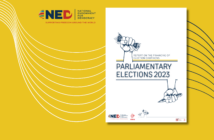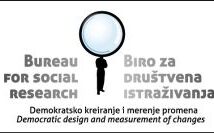This report covers the activities that the Government of Montenegro undertook during 2016 in connection with the announcement of the construction of new thermal power plant in Pljevlja. It is the sequel of the Report on (Non)Economic Viability of Construction of Unit II of the Thermal Power Plant Pljevlja, which was published by the NGO MANS in February 2016.
The government launched the project of building a new power plant in 2012 under the pretext that the new unit was required due to the deficit of electricity in the country and its further economic development. However, five years later, it has not confirmed the existence of the deficit, nor shown any clear public benefit that the planned investment would provide.
Moreover, the project of construction of Unit II has become one of the most controversial economic projects in the country, which is followed by sharp criticism from the civil society and a part of the professional community, who claim that the project is economically inefficient and that it will have far-reaching negative consequences for human health and the environment. Thus, the public has become louder in hear demanding that the project be terminated.
At the same time, it is announced across Europe that the thermal power plants in the European Union, Montenegro being one of the candidate countries, are likely to terminate their production sooner than 2050, in order to influence the reduction of harmful gases in the air.
Despite this, the Government of Montenegro continued intensive negotiations with the Czech company Skoda Praha during 2016 for the purpose of the preparatory work on the project and finding a financing model of carrying out the Project of Unit II of the Thermal Power Plant.
Also, the study of the profitability of the investment was made public for the first time. However, it did not offer any indisputable data that would clearly establish that the construction of Unit II is economically viable, but is rather based on a series of unverified facts and unrealistic indicators.
The transparency of the whole process of the announced construction is still questionable. It was expected that the company Skoda Praha would finally announce whether it has managed to provide a creditor for the investment in early 2017.
Complete report download HERE (PDF)



